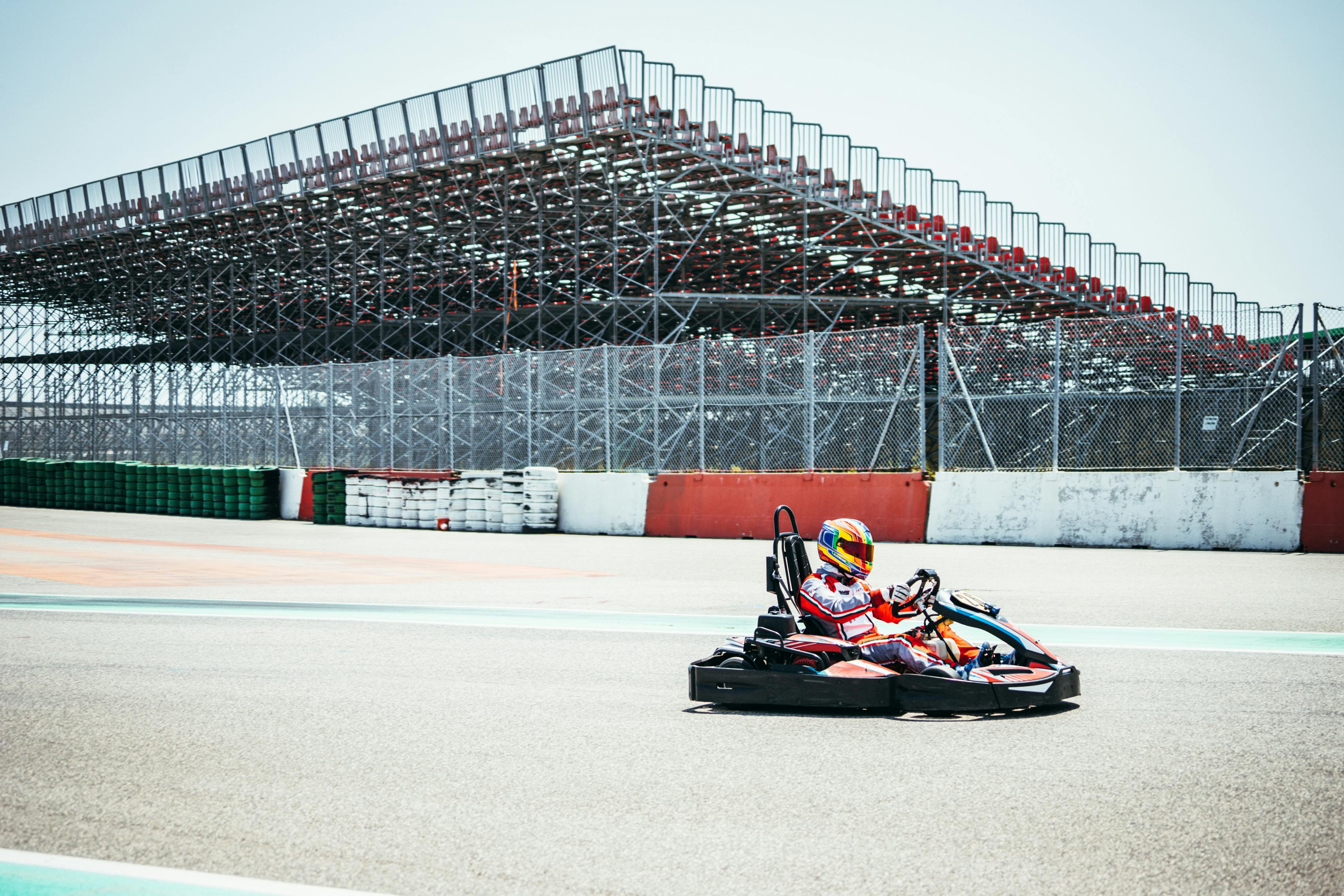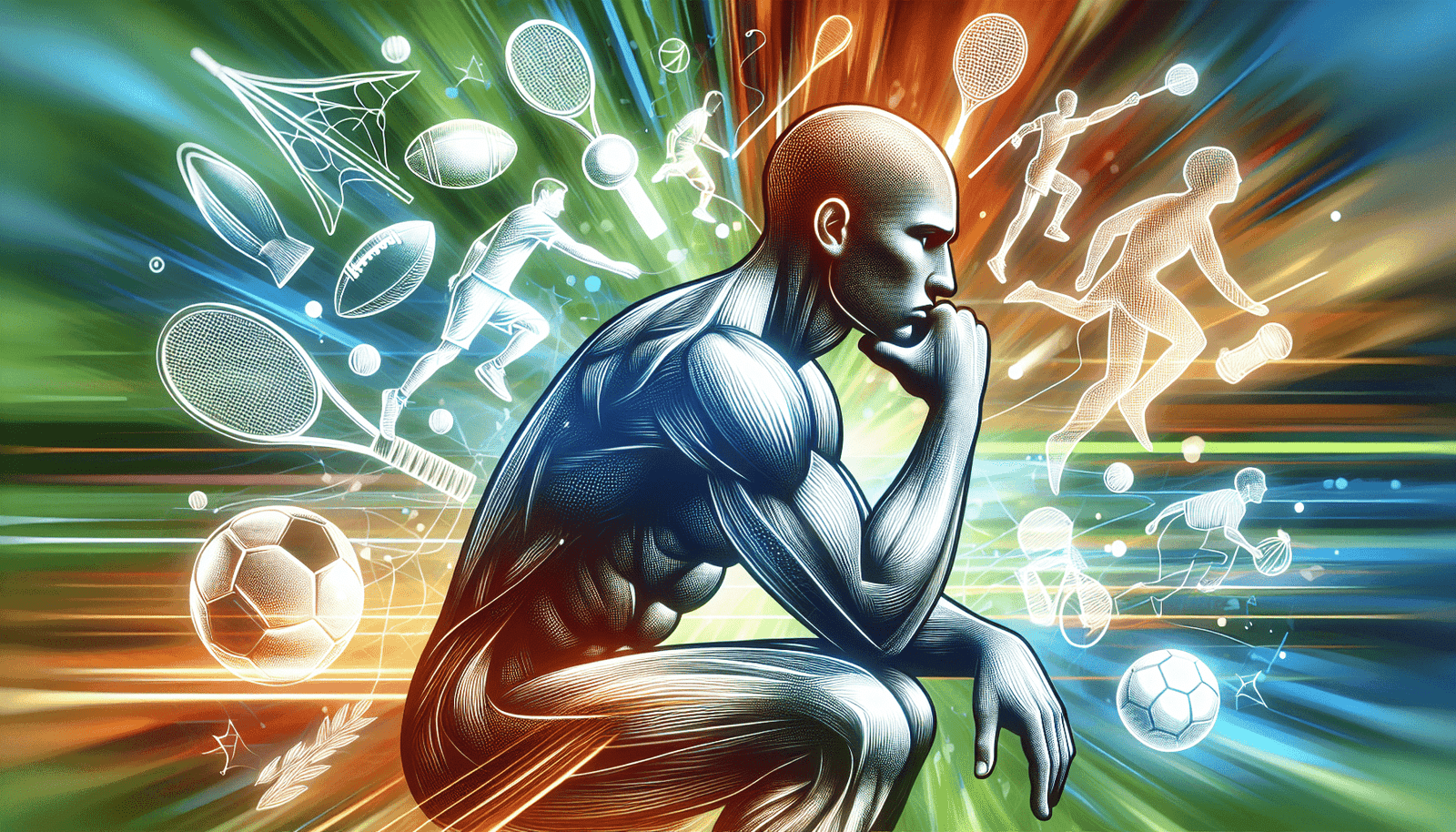Are you curious to explore the pivotal role of sports psychology in enhancing your technique? Understanding the importance of sports psychology in technique improvement can provide you with valuable insights into how mental factors intersect with physical abilities. By delving into the psychological aspects of sports, you can uncover the hidden potential for growth and improvement within yourself. So, let’s dive into the multifaceted world of sports psychology and discover how it can help you unlock your full athletic potential.
Understanding Sports Psychology
Definition of sports psychology
Sports psychology is a field that focuses on the psychological aspects of athletic performance and how they can impact an athlete’s overall success. It involves the study of mindset, emotions, mental processes, and behaviors in relation to sports. Sports psychologists work closely with athletes to help them develop and maintain a positive mental state, enhance their performance, and overcome mental barriers that may impede their progress.
Role of sports psychology in athletics
Sports psychology plays a crucial role in athletics as it helps athletes unlock their full potential by improving their mental well-being and performance. By working on psychological aspects such as confidence, focus, goal setting, emotional regulation, and self-talk, athletes are able to enhance their overall performance and technique. Sports psychologists provide athletes with strategies and techniques to overcome challenges, cope with stress, and maintain a positive mindset. They are instrumental in helping athletes achieve mental resilience, which is vital for success in sports.
Benefits of incorporating sports psychology in training
The incorporation of sports psychology techniques in training can yield numerous benefits for athletes. Firstly, it enhances technique improvement by addressing the mental barriers that may hinder progress. By working on the psychological aspects of technique execution, athletes can refine their skills and perform at their best. Secondly, sports psychology helps athletes develop confidence, which is vital for executing techniques with precision and consistency. Additionally, it improves focus, enabling athletes to consistently maintain their concentration during training and competitive situations. Sports psychology also teaches athletes goal-setting and visualization techniques, which assist in honing their motor skills and achieving desired outcomes. Furthermore, by teaching stress management strategies and emotional regulation techniques, sports psychology helps athletes overcome pressure and perform at their optimal level. Finally, sports psychology provides athletes with support and guidance, giving them a sense of empowerment and motivation to persist in their pursuit of technique improvement.
Technique Improvement in Sports
Importance of technique in sports performance
Technique plays a vital role in sports performance as it directly impacts an athlete’s ability to execute skills efficiently and effectively. Having proper technique not only enhances performance but also minimizes the risk of injury. In sports such as gymnastics, diving, and figure skating, technique is a fundamental aspect that determines success. Proper form, body positioning, and mechanics enable athletes to achieve optimal results and excel in their respective disciplines. Technique improvement is a continuous process that requires dedicated practice, feedback, and attention to detail.
Common challenges in technique improvement
Improving technique in sports comes with its fair share of challenges. One common challenge is overcoming muscle memory and breaking old habits. Athletes often find it difficult to change their technique patterns, especially if they have been practicing a particular way for an extended period. Another challenge is maintaining consistency in technique execution. Athletes may struggle to reproduce their best technique consistently, leading to variations in performance. External factors, such as fatigue, distractions, and pressure, can also pose challenges to technique improvement. Additionally, athletes may face mental barriers, such as self-doubt or fear of failure, which can hinder their progress.
Factors affecting technique development
Several factors contribute to the development of technique in sports. Physical factors, such as strength, flexibility, coordination, and biomechanics, play a significant role in technique execution. Proper conditioning and training can enhance these physical aspects, thereby improving technique. Cognitive factors, including focus, concentration, and decision-making, also influence technique development. Athletes need to have a clear mind and the ability to make split-second decisions during fast-paced sports. Additionally, environmental factors, such as training facilities, equipment, and coaching expertise, can impact technique development. Creating an optimal training environment with the right resources and support can facilitate technique improvement.

Link between Sports Psychology and Technique Improvement
Psychological aspects of technique improvement
Technique improvement is not solely about physical skills; it also requires addressing the mental aspects. Sports psychology recognizes the interconnectedness of the mind and body, emphasizing the importance of mental preparation in technique enhancement. Mental aspects, such as confidence, focus, goal setting, emotional regulation, and self-talk, significantly influence an athlete’s ability to refine their technique. By working on these psychological factors, athletes can fine-tune their movement patterns and increase their efficiency and consistency in technique execution.
Mental preparation for technique enhancement
Successful technique improvement requires mental preparation. Athletes need to visualize themselves executing the desired technique with precision and success. Through mental imagery, athletes can mentally rehearse the movement, reinforcing neural connections and enhancing muscle memory. Proper mental preparation also involves setting realistic goals, both short-term and long-term, that align with the desired technique improvement. Athletes can use visualization techniques to envision themselves achieving these goals, bringing clarity and focus to their training sessions.
Psychological barriers to technique improvement
Several psychological barriers can impede technique improvement. Fear of failure or making mistakes can create mental blocks that hinder an athlete’s progress. Negative self-talk and self-doubt can erode confidence and affect the athlete’s ability to execute techniques effectively. Lack of focus or distractions can also hamper technique improvement, as athletes need to be fully present and engaged during their practice sessions. Identifying and addressing these psychological barriers is essential for athletes to overcome them and unlock their full potential in refining their technique.
Building Confidence and Focus
Confidence as a key element in technique improvement
Confidence is a vital component in technique improvement as it influences an athlete’s belief in their ability to execute skills successfully. When an athlete lacks confidence, they may hesitate, second-guess themselves, or become anxious during practice or competition, leading to suboptimal technique execution. Building confidence involves developing a positive self-image, acknowledging past successes, and focusing on strengths rather than weaknesses. As athletes become more confident in their abilities, they are more likely to take risks, experiment with new techniques, and push the boundaries of their performance.
Mental strategies for building confidence
Sports psychology provides athletes with numerous mental strategies for building confidence. One effective strategy is positive self-talk, where athletes consciously replace negative thoughts with positive affirmations. By reframing their self-talk, athletes can cultivate a resilient and confident mindset. Visualization techniques are also valuable tools in building confidence. Athletes can mentally rehearse successful execution of techniques, envisioning themselves performing flawlessly and achieving desired outcomes. Additionally, receiving constructive feedback and support from coaches and sports psychologists can boost an athlete’s confidence, as they feel validated and encouraged in their pursuit of technique improvement.
The role of focus in refining technique
Focus is another crucial element in refining technique. Athletes need to be fully present and engaged during their training sessions, directing their attention to the specific movements, positions, and cues associated with the desired technique. Maintaining focus helps athletes identify areas for improvement, make necessary adjustments, and reinforce proper technique execution. By eliminating distractions and cultivating concentration, athletes can enhance their ability to refine their technique effectively. Techniques such as mindfulness and deep breathing can aid in developing and sustaining focus, allowing athletes to optimize their training sessions and progress in their technique improvement journey.

Goal Setting and Visualization
Setting goals to enhance technique
Goal setting is an integral part of enhancing technique as it provides athletes with a clear direction and purpose in their training. Setting specific, measurable, achievable, relevant, and time-bound (SMART) goals helps athletes break down their technique improvement journey into manageable steps. By setting short-term and long-term goals, athletes can create a roadmap for success. Short-term goals focus on immediate improvements, while long-term goals provide a vision of where the athlete wants to be in terms of technique proficiency. Effective goal setting enhances motivation, provides a sense of accomplishment, and guides athletes in their pursuit of refining their technique.
Creating a clear vision through visualization
Visualization is a powerful technique that athletes can use to enhance technique improvement. By mentally visualizing the desired technique, athletes create a clear and vivid picture of how it should be executed. Through mental imagery, athletes can rehearse the movement, engaging their muscles and neural pathways without physically performing the technique. Visualization helps athletes program their minds for success, enhancing their ability to execute techniques precisely and consistently. By regularly incorporating visualization exercises into their training routine, athletes can refine their motor skills, improve technique, and develop the neural connections necessary for optimal performance.
Using imagery to refine motor skills
Imagery, a form of mental practice, can be used to refine motor skills in technique improvement. Athletes can utilize imagery to simulate the precise movements, body positions, and timing required for successful technique execution. By mentally rehearsing the sensory aspects of the technique, such as the sound, feel, and visual cues, athletes activate the same neural pathways that would be activated during physical practice. This strengthens the mind-body connection and enhances muscle memory. Through the consistent use of imagery, athletes can refine their motor skills, improve their technique, and ultimately optimize their overall performance.
Managing Pressure and Stress
Effects of pressure on technique execution
Pressure can significantly impact an athlete’s ability to execute techniques with precision. When faced with high-pressure situations, such as competitive events or critical evaluations, athletes may experience increased anxiety, nervousness, and distraction. As a result, their technique execution may suffer, leading to errors or inconsistencies. Pressure can disrupt an athlete’s focus, hinder decision-making abilities, and increase muscle tension, all of which directly affect technique performance. Therefore, effective management of pressure is essential for athletes to maintain optimal technique execution.
Coping strategies for managing stress
Sports psychology offers athletes various coping strategies to manage stress effectively and mitigate its impact on technique execution. One effective strategy is deep breathing, which helps regulate the autonomic nervous system and induces a relaxation response. By taking slow, deliberate breaths, athletes can activate the parasympathetic nervous system, promoting a state of calm and reducing the negative effects of stress. Another strategy is progressive muscle relaxation, where athletes systematically tense and then release different muscle groups to alleviate tension and promote relaxation. Additionally, developing pre-performance routines or rituals can help athletes manage stress by providing a sense of familiarity and control in high-pressure situations.
Breathing exercises and relaxation techniques
Breathing exercises and relaxation techniques are valuable tools for athletes in managing pressure and stress. Deep breathing is a simple yet effective technique that can be practiced anywhere, at any time. By taking slow, diaphragmatic breaths, athletes can increase oxygen intake, slow down their heart rate, and activate the body’s natural relaxation response. Another technique, progressive muscle relaxation, involves sequentially tensing and releasing different muscle groups to bring about physical and mental relaxation. Both breathing exercises and relaxation techniques can be incorporated into an athlete’s pre-performance routine to promote a calm and focused state, enabling optimal technique execution.

Self-Talk and Positive Thinking
Harnessing the power of self-talk in technique improvement
Self-talk, the internal dialogue individuals have with themselves, plays a significant role in technique improvement. Negative self-talk, characterized by self-criticism, doubt, and pessimism, can hinder progress and negatively impact an athlete’s confidence and motivation. On the other hand, positive self-talk can be a powerful tool to enhance technique improvement. By consciously replacing negative thoughts with positive affirmations and constructive self-feedback, athletes can cultivate a resilient and confident mindset. Positive self-talk can enhance focus, increase motivation, and enable athletes to maintain a constructive perspective when facing challenges in refining their technique.
Replacing negative thoughts with positive affirmations
One way to harness the power of self-talk is by replacing negative thoughts with positive affirmations. Athletes can identify common negative thoughts and beliefs that arise during technique improvement and consciously challenge them. By reframing negative statements into positive and constructive affirmations, athletes can reshape their mindset and build self-belief. For example, replacing thoughts like “I can’t do this” with “I am capable of continuous improvement” can create a shift in perspective and foster a more positive and growth-oriented mindset. Intentionally incorporating positive affirmations into daily practice sessions can support technique improvement by enhancing an athlete’s self-image and confidence.
Encouraging self-belief and motivation
Self-belief and motivation are crucial factors in technique improvement. By fostering a positive self-image and nurturing the belief that progress is possible, athletes can enhance their commitment and dedication to refining their technique. Sports psychology techniques can be used to cultivate a growth mindset, emphasizing the notion that abilities and skills are not fixed, but rather can be developed through effort and practice. Setting realistic goals, celebrating small victories, and regularly reviewing progress can also enhance motivation and maintain a sense of purpose in the pursuit of technique improvement. With self-belief and motivation, athletes are more likely to persist, embrace challenges, and ultimately achieve their desired level of technical proficiency.
Emotional Regulation and Performance
Controlling emotions for better technique execution
Emotions play a significant role in an athlete’s performance, including technique execution. Strong emotions, such as anger, frustration, or anxiety, can negatively impact an athlete’s ability to execute techniques effectively and consistently. Emotions can lead to increased muscle tension, decreased focus, impaired decision-making, and compromised technique performance. Therefore, learning to control and regulate emotions is essential for athletes to maintain an optimal mental state and execute techniques to the best of their ability.
Strategies for emotional regulation during training and competition
Sports psychology provides athletes with strategies for emotional regulation during training and competition. One effective strategy is mindfulness, which involves being fully present and non-judgmentally aware of one’s thoughts, emotions, and sensations. By practicing mindfulness, athletes can observe their emotions without becoming overwhelmed by them, allowing for increased self-awareness and better emotional regulation. Another strategy is the utilization of emotional anchors, such as calming imagery or trigger words, to redirect focus and invoke positive emotions. Additionally, developing stress management techniques, such as progressive muscle relaxation or deep breathing, can help athletes reduce emotional arousal and maintain equilibrium during training and competitive situations.
The impact of emotions on performance
Emotions have a profound impact on an athlete’s performance, including technique execution. Positive emotions, such as joy, excitement, or determination, can enhance an athlete’s focus, motivation, and overall performance. These emotions promote a state of optimal arousal, where an athlete feels energized, engaged, and fully present. On the other hand, negative emotions, such as anger, frustration, or fear, can hinder performance by causing distractions, tension, and impaired decision-making. It’s essential for athletes to recognize and acknowledge their emotions, understanding how they influence their technique execution. Through emotional regulation techniques, athletes can learn to manage emotions effectively and channel them in ways that positively impact their performance and technique improvement.

Overcoming Mental Blocks
Identifying and addressing mental blocks in technique improvement
Mental blocks are mental barriers that athletes may encounter during technique improvement. These blocks can manifest as an inability to perform a previously learned skill, a fear of trying new techniques, or a sudden loss of confidence in executing specific moves. Mental blocks can be caused by various factors such as previous failures, fear of injury, or pressure from oneself or others. Recognizing and addressing mental blocks is crucial for an athlete to progress in their technique improvement journey.
Psychological techniques to overcome barriers
Sports psychology offers athletes several psychological techniques to overcome mental blocks in technique improvement. One effective technique is reframing, where athletes reframe negative thoughts or perceptions about specific techniques into more positive and constructive ones. By changing one’s perspective and focusing on the learning experience rather than the fear of failure, athletes can build confidence and reduce mental obstacles. Visualization techniques can also aid in overcoming mental blocks. Athletes can mentally visualize themselves successfully executing the technique, repeatedly exposing themselves to the desired movement in a controlled and positive mental environment. Additionally, breaking down the technique into smaller, manageable components and gradually building up to the complete skill can help athletes overcome mental barriers and regain confidence.
Building resilience and persistence
Building resilience and persistence is crucial for athletes in overcoming mental blocks and progressing in technique improvement. Mental obstacles can be frustrating and discouraging, but with resilience, athletes can bounce back from setbacks and continue their pursuit of refined technique. Building resilience involves cultivating a growth mindset, focusing on the process rather than the outcome, and embracing challenges as opportunities for growth. Persistence is the ability to stay committed, motivated, and dedicated despite obstacles or setbacks. Setting realistic goals, seeking support from coaches or sports psychologists, and maintaining a positive mindset are essential in fostering resilience and persistence in the face of mental blocks.
Psychological Support and Professional Guidance
Role of sports psychologists and coaches in technique improvement
Sports psychologists and coaches play a vital role in providing psychological support and professional guidance to athletes in their technique improvement journey. Sports psychologists have expertise in understanding the psychological factors that affect performance and can provide athletes with strategies, techniques, and mental tools to overcome obstacles, enhance confidence, and refine technique execution. They can support athletes in setting realistic goals, managing stress, improving mental toughness, and developing effective coping mechanisms. Coaches also play a crucial role in technique improvement by providing technical feedback, structuring training programs, and offering encouragement and motivation. By working collaboratively, sports psychologists and coaches create an integrated approach to an athlete’s mental and physical training, optimizing their performance and technique proficiency.
Integrated approach to mental and physical training
An integrated approach to mental and physical training is essential for effective technique improvement. Sports psychology should be incorporated into an athlete’s overall training plan, alongside their physical conditioning and technical practice. By addressing both the physical and mental aspects of technique execution, athletes can achieve a higher level of performance and refine their skills more rapidly. Integrated training involves regularly incorporating mental skills training, such as visualization, goal setting, and stress management techniques, into an athlete’s routine. It also involves creating an open and supportive environment that encourages athletes to seek psychological support and guidance. By recognizing the interconnectedness of mental and physical well-being, athletes can achieve a harmonious balance that optimizes technique improvement and overall performance.
Collaborative effort for optimal performance
Optimal performance in technique improvement requires a collaborative effort between athletes, sports psychologists, and coaches. Athletes must be proactive in seeking psychological support and actively applying the techniques and strategies provided. They should maintain open communication with their coaches, sharing their experiences, concerns, and progress to ensure their training plans align with their technique improvement goals. Sports psychologists and coaches must work together, sharing insights and knowledge, to create a comprehensive approach that addresses both the physical and mental aspects of technique improvement. Regular collaboration and feedback allow for adjustments, refinements, and ongoing evaluation of the techniques and strategies employed. By fostering a collaborative effort, athletes can receive the necessary psychological support and professional guidance that will ultimately lead to optimal performance and significant progress in technique improvement.
Incorporating sports psychology in technique improvement brings numerous benefits for athletes. By recognizing and addressing the psychological aspects of performance, athletes can enhance their mental state, build confidence, maintain focus, set effective goals, manage pressure, regulate emotions, overcome mental barriers, and receive necessary support and guidance. Through the collaborative efforts of athletes, sports psychologists, and coaches, technique improvement becomes a comprehensive journey that optimizes performance and unlocks an athlete’s full potential. So, whether you’re an aspiring athlete or a seasoned competitor, consider integrating sports psychology into your training regimen and witness the positive impact it can have on your technique and overall athletic success.
